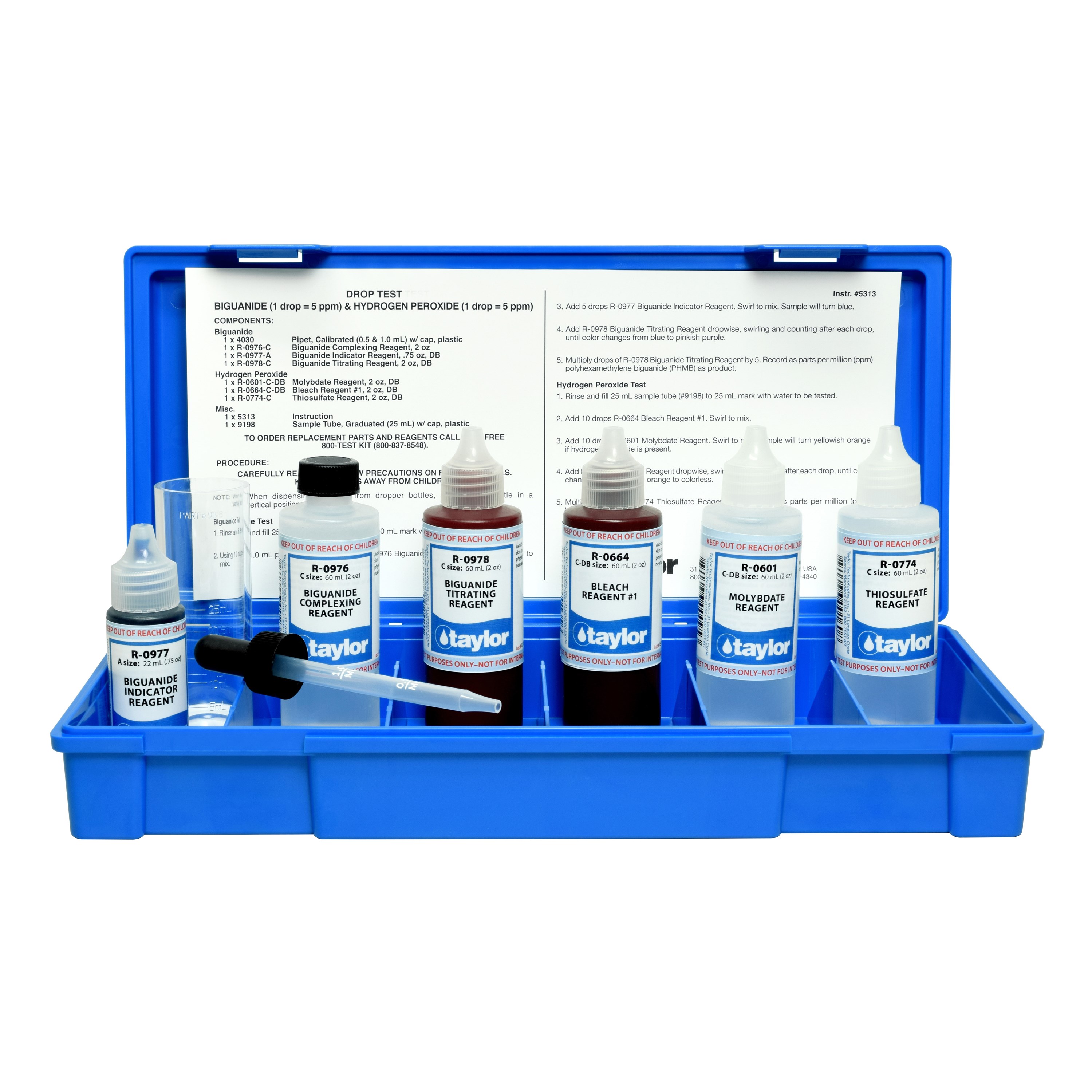Lowdown On A High-Ticket Sanitizer: Biguanide
Biguanide (buy GA-WHY nide) products are approved for use as a sanitizer in pools and spas by the U.S. Environmental Protection Agency. While there is no regulatory barrier to using them in residential installations, biguanide sanitizers may not be used in commercial pools and spas in many jurisdictions. One major manufacturer, BioLab, says its SoftSwim® sanitizer is best used in pools under 25,000 gallons.
Other brand names of biguanide products include SoftSoak®, Baquacil®, Baqua Spa®, Clear Comfort, Polyclear™ Maxipolish, Splashes, and Revacil®. These liquid treatments contain 20% polyhexamethylene biguanide, or PHMB for short. PHMB is a synthetic, positively charged polymer (long chain of repeated molecular units) with a number of attributes, most notably the ability to attach to bacteria and stop these one-celled organisms from carrying out essential life functions. To put it plainly, the encumbered bacteria start leaking then die. This is a good thing because bacteria are what cause sickness and infection in swimmers.
K-1725 offers tests for biguanide sanitizer and hydrogen peroxide oxidizer.
PHMB sanitizers also have a long shelf life, are easy on the eyes and skin, are stable in sunlight and at elevated spa temperatures, are completely soluble in water, have little effect on water balance, and will form masses with microscopic impurities in the water that are then large enough to be filtered out. Because there is no chlorine in a biguanide pool, neither are there chloramines, those smelly, irritating compounds formed when hypochlorous acid reacts with ammonia wastes from bathers. These advantages come at a price, of course. One can expect chemical costs to be at least 10‒20% higher for a biguanide-treated pool than for a chlorine-treated one.
Shopping Considerations
PHMB sanitizers are invariably just one part of a holistic treatment program that also includes an oxidizer (hydrogen peroxide) and, for pools, a quat or polyquat algaecide. A manufacturer's program can incorporate a stain control treatment, a mold killer, a "waterline control" product (for spas), and a filter cleaner as well…pointing out four problems commonly encountered with biguanide use: increased metal-staining potential, slime/water mold formation in plumbing and filtration systems, so-called bathtub ring, and filters that clog up faster.
Biguanide products are incompatible with chlorine, bromine, copper algaecides, potassium monopersulfate shocks, copper/silver ionizers, salt water chlorine generators, and some metal removers and sequestering agents. The International Aquatic Foundation (IAF) bulletin on PHMB sanitizers says ozone is incompatible but at least one product, Arch's Baqua Spa, has been developed specifically for use in spas with ozonators.
Testing Options
The IAF and National Swimming Pool Foundation guidelines for water chemistry both say to keep the biguanide level between 30 to 50 ppm. Taylor offers a stand-alone test kit for testing hydrogen peroxide (K-1443, 2 oz. reagents), and one for biguanide (K-1444, .75 oz. reagents), a combo kit with both biaguanide and hydrogen peroxide tests (K-1725, all 2 oz. reagents except for one indicator), and a low-range quat/polyquat algaecide test kit (K-9065, 2 oz. reagents). All are simple drop-count titrations, meaning the readings are taken at the point the treated sample changes from one color to another. Multiply the number of drops used to reach this endpoint by the equivalence factor provided in the test instruction. For instance, in the biguanide test, 1 drop equals 5 ppm of any brand containing 20% PHMB. Taylor also offers colorimeter test kits for biguanide (K-8040) and hydrogen peroxide (K-8020).


